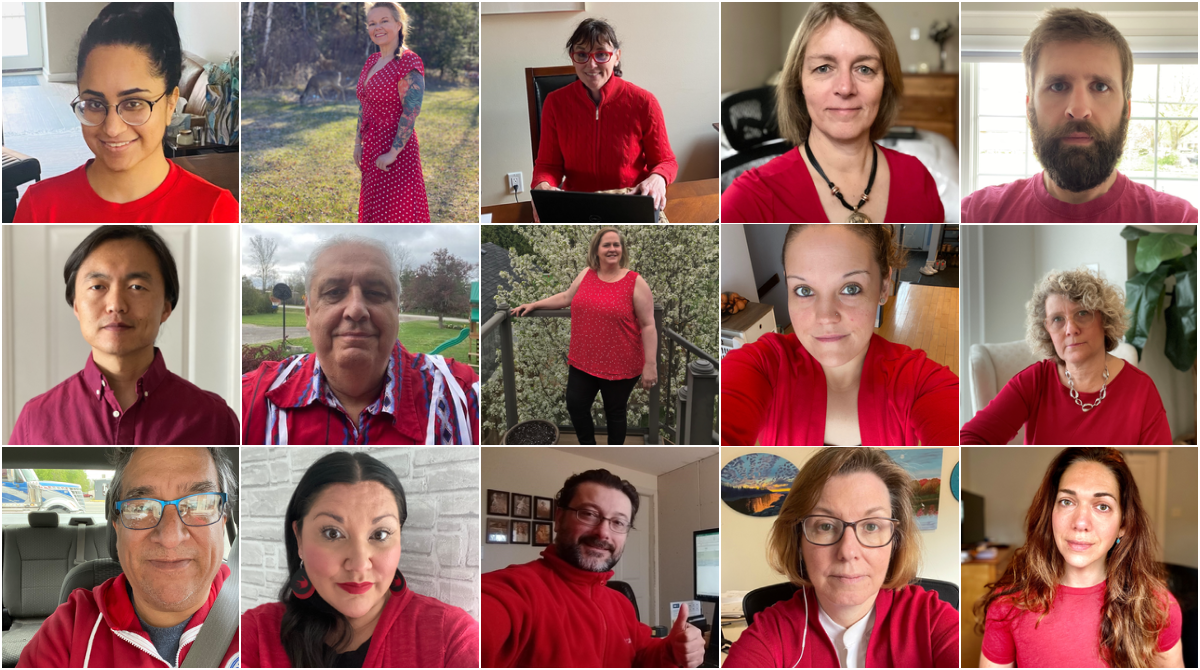On this National Day of Awareness for Missing and Murdered Indigenous Women and Girls, the Nuclear Waste Management Organization (NWMO) is calling on all Canadians to reflect on their role in pursuing Reconciliation and addressing the ongoing violence against Indigenous women and girls in this country and around the world.
Also known as Red Dress Day, the National Day of Awareness for Missing and Murdered Indigenous Women and Girls is marked each year on May 5. It is an important moment for all Canadians to commemorate the lives lost and those missing, and reflect on the findings of the National Inquiry into Missing and Murdered Indigenous Women and Girls (MMIWG).
The red dress emerged as a symbol of this national day of remembrance and action, following the installation art piece by Métis artist Jamie Black using empty red dresses. As the artist explained, the dresses “…hope to draw attention to the gendered and racialized nature of violent crimes against Aboriginal women and to evoke a presence through the marking of absence.”
“Red Dress Day is an important moment for reflection at the NWMO, for all our employees and contractors, and for everyone across Canada. It raises awareness for missing and murdered Indigenous women and girls, and recognizes that violence against Indigenous women is an ongoing problem in Canada that we can’t ignore,” said NWMO President and CEO Laurie Swami. “It’s been almost two years since the MMIWG inquiry, and it’s on all of us to do more to see the 261 calls to justice implemented.”
NWMO employees were encouraged to wear red and share photos of themselves and their families taking a moment to mark this important day. It is one of the many ways as an organization we strive to honour our commitment to Reconciliation. The NWMO is also committed to reflecting and better understanding how the “calls to justice” impact our work as we implement our project.
On Oct. 17, 2019, through ceremony, the NWMO issued a Reconciliation Policy that sets out how the organization will contribute to Reconciliation. Under the policy, the NWMO commits to respectful and meaningful engagement with Indigenous peoples and communities, providing cultural awareness and Reconciliation training to staff and contractors, and annually publishing a Reconciliation implementation plan.
The NWMO as an organization is committed to work with and listen to Indigenous peoples, and incorporate Indigenous Knowledge in all our work.
If you would like to learn more about the significance of Red Dress Day, the NWMO produced a video with Elder Diane Longboat to provide more information about this important day and issue.

